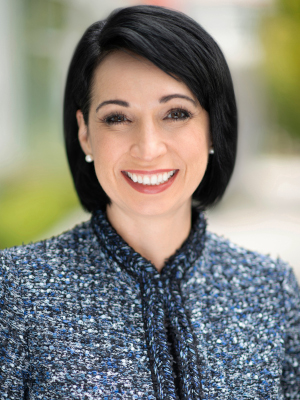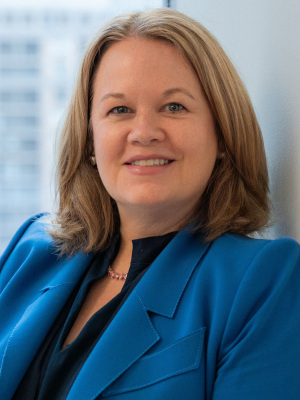This is one in a series of articles in our month-long special report, “Women in Family Offices.” To view all the articles, click here.
As part of our month-long focus on women in family offices, we asked six female leaders to talk about themselves, their businesses and their views on women’s strengths, positions and progress in the family-office landscape.
Related video: Watch our panel on Women in Family Offices
Below are the contributions of the second three. (To see the first three, click here.)
Carolyn Cole, founder and CEO, Cole & Associates, Vancouver and Toronto

Plenty has changed since I started working in this sector.
Fifteen to 20 years ago, female family members were typically given the family’s charitable foundation to manage, whether it was their passion or not. For some, this worked brilliantly, and for others it was a token role to keep them away from the real decision-makers.
Today, women are most often at the decision table as equals to their male family members.
Additionally, the number of women being hired into the single-family-office space as team members or to lead financial decisions has significantly increased.
North America is generally behind the rest of the world in women overseeing wealth. Simply reflect on the number of women elected to run their countries around the globe; matriarch decision-making is more advanced elsewhere. The question is whether this is causation or correlation as it relates to advanced growth. There are no concrete studies available to indicate an answer.
Families are multifaceted, and in general women tend to multitask better. This enables them to consider different personalities, goals and challenges simultaneously. However, not all women have this skill, and making the assumption that all women do will not serve anyone well.
Women are greatly appreciated for their ability to move things forward, balance both the technical and personal elements, and collaborate. Regardless of the sector of business, every family has a female component. There are mothers, wives, sisters, daughters. In many ways the single-family offices are getting ahead of the curve in hiring female talent.
Women still face a disproportionate challenge in balancing home and work responsibilities, but this is changing quite quickly as a rising generation of men step up.
If you rewind and consider the experiences of men in their 60s or older, most had two-parent homes, and their mothers were often in a secondary earning position while displaying a traditional role in the home. Today there is an entire generation of men who watched their mothers work at jobs that were equally significant as their dads’, as well as many raised by single mothers. This has contributed to shaping change.
Mentorship is important in recruiting, retaining and advancing women in the field, but no more than in any other field. I believe the real opportunity is for successful women to also mentor a rising generation of men. This should not be overlooked.
I see opportunity and hope everywhere. Our world is in chaos for many reasons, but the ability to make change is in everyone’s hands.
Krista Kerr, CEO, Kerr Financial Group, Toronto

One of the most rewarding aspects of transitioning from the integrated wealth management side of the business to the family office is the appreciation at the family-office level that wealth is about more than just financial capital. In addition to helping clients optimize their financial resources through better risk-adjusted investment returns, lower taxes and other integrated planning, we also help families to enhance their non-financial legacies.
This is done by growing their human capital (relationships and experiences with their family members), intellectual capital (collective knowledge held by the family) and social capital (interactions with and support of their broader communities). The financial capital is what helps to facilitate the growth of the non-financial legacy but is not the only end in itself.
When families have been focused on growing their businesses and managing their financial priorities, I have found the introduction of this broader sense of a family’s wealth to be eye-opening and inspiring. It allows all family members to be a part of the discussion regarding the family’s future objectives, not only those who have been involved in the financial discussions to date.
And it provides the opportunity for all family members to find their role in the family enterprise (for some participating in the investment discussions, and for others contributing to family education programs, for example).
I believe that women are uniquely positioned to inspire and facilitate these broader family discussions. Women’s natural comfort with active listening, empathy, sharing lived experiences and personalized communication make them valued members of the family-office team.
And from my point of view, this broader discussion of purpose and legacy and of what is truly important to the family gives great meaning to the work we are privileged to do.
Allison Comeau, VP, head of strategy and growth, ATB Advisory Services, Calgary

It is critical for firms and clients alike to consider why female advisors play a key role in the future of wealth transfer to next inheritors. I have experienced firsthand the impact that it can have in building confidence in both decision-making and transition of wealth ownership.
Women bring distinct and invaluable strengths to the wealth-management sector, particularly when serving multi-generational families.
One crucial aspect is the inherent ability to dismantle gender bias within wealth conversations. Historically, financial discussions have been dominated by male perspectives, overlooking the significant financial roles women play in family dynamics. By actively challenging these biases, female executives create more inclusive and comprehensive advisory experiences.
This involves recognizing and addressing the unique financial needs and goals of all family members, regardless of gender, ensuring a more holistic and equitable wealth-management strategy. If a firm is truly bold, they can also provide gender-bias training for their male counterparts. We do this at ATB through our W by ATB team, and we have seen the impact on client experience and market share.
Furthermore, shared lived experiences are key contributing factors in building deep, trusting advisory relationships. Women, often navigating multifaceted roles in their personal and professional lives, can forge connections based on empathy and understanding. This ability to relate on a personal level fosters a sense of trust and openness, essential when dealing with the sensitive and complex nature of UHNW family finances.
By providing a safe space for open communication, female executives can cultivate stronger, more meaningful client relationships.
However, the appreciation of women’s skills and views within the wealth-management sector remains inconsistent. While the trend toward greater inclusivity is undeniable, its implementation varies significantly.
The tone set by a firm’s leadership plays a pivotal role. Firms that actively seek women in advisory roles are more likely to fully leverage the strengths women bring. In these environments, female executives and advisors are empowered to contribute their unique insights and drive client advocacy and retention, even as wealth moves from one owner to the next.
The readiness of UHNW families to embrace a more inclusive decision-making structure also significantly impacts the appreciation of women’s skills. While many families are evolving and recognizing the importance of diverse perspectives, some remain entrenched in traditional power dynamics. The shift toward greater inclusivity is a gradual process, and the full appreciation of women’s strengths in wealth management depends on continued progress in both firm culture and family governance.
As more women rise to leadership positions and demonstrate their expertise, the sector and, more importantly, our female clients will undoubtedly benefit from their unique perspectives and capabilities. I have seen the shift in the past decade and look forward to the increased momentum in the next decade.
Click to see Part 1 of this two-part series of essays submitted by women in the family office field.
Responses have been lightly edited for clarity and length.
The Canadian Family Offices newsletter comes out on Sundays and Wednesdays. If you are interested in stories about Canadian enterprising families, family offices and the professionals who work with them, but like your content aggregated, you can sign up for our free newsletter here.
Please visit here to see information about our standards of journalistic excellence.



